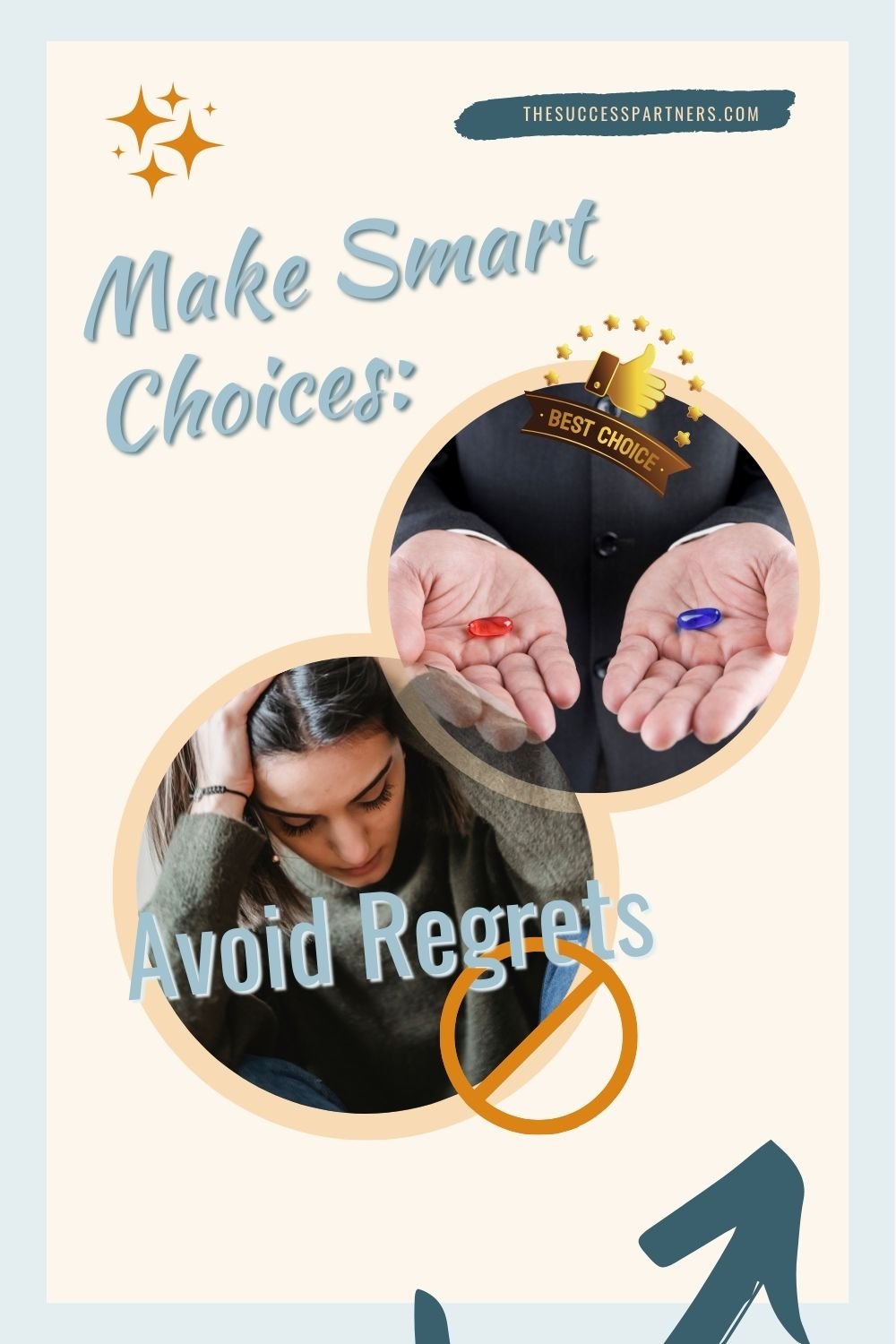Make Smart Choices: Avoid Regrets Later On
Evaluate your Choices
A New Year, a fresh start. Or at least that's how I like to think about this time of the year. It's an opportunity to take stock of my choices over the last year and evaluate the results.
What worked well?
What didn't deliver the results I wanted because, in fact, I got alternative outcomes to the ones I wanted? You could call those failures, but I choose not to.
What could I do more of to accelerate my direction of travel?
At this time of year, many people choose to set goals to support them in deciding where they want to be this time next year, or at least start out in that direction. Others choose not to. This, too, is a decision - no judgement, each to their own. Whatever works.
Every day, we make choices; everything we say and do is the consequence of a decision, whether we realise it or not. Much of the time, you don't even notice you are making so many decisions. What will you wear today? Are you going to deliver that report? Is it even finished, or should you tweak it a bit more? Will you buy this house or that one? Is your child okay to go to school? What's for dinner? Are you taking the promotion or new job or resigning? Will you buy apples or oranges? Some of these, you certainly know, are decisions, but all those mini-decisions... There is no simple formula for choosing the best option in each situation, big or small. You can only make the best choice with the information you have available to you at the time. This is why hindsight is so valuable or frustrating and reflection so worthwhile.
Every choice you make contributes to your present situation in life. It influences who you are as an individual because you routinely make decisions without even knowing it. Good decision-making is a skill that must be developed. The bigger the decision, the more critical it is that you have a reliable process to follow.
It is not something we are born with but rather a step-by-step process that is hopefully learned via life experience. Now, let's look at five ways to make choices you won't regret.
Specify your Goals
Focusing on your specific objective is one of the most successful decision-making methods. This involves defining the purpose of your decision by asking yourself what issue needs to be addressed. Also, why is it necessary to tackle this issue? Making excellent judgments is easier when you determine what's really important. When you understand why you've made a particular decision, you'll be better able to stick with it and fight for it.
Trust your Gut's Choice
Do you frequently take too long to decide because you're frightened of what might happen? Consequently, you conduct meticulous research, in-depth analysis, and pros and cons before deciding. This whole process takes time. Instead, trust your gut instinct. You know, that feeling you get that instantly says 'Yes' or 'No' that you invariably do your best to ignore. For the most part, your first instinct is usually the correct one or the one you really really want.
“I’ve learned that whenever I decide something with an open heart, I usually make the right decision”
- Maya Angelou
Consider the Consequences of your Choices
Considering the potential impacts of your choices is an essential step, as it allows you to go over the ultimate advantages and disadvantages of the many alternatives you noted in the previous step. It's also crucial because you want to be confident with your options and the probable outcomes of whatever you decide. In this step, you'll ask yourself what the potential consequences of your decision will be. What impact will it have now? What impact will it have on your future down the road?
Speak to Loved Ones about your Decisions
WebMD states, "You are there to listen to and support your loved one, but you also need a support person. Talk openly and honestly with a friend or family member." Speaking to loved ones about what you plan to do makes you more likely to follow through.
Share the specifics of your decision and any concerns you have about what may go wrong. Simply expressing your concerns about your choice may help you feel better, and your friend or family member may be able to provide you with helpful advice or encouraging words.
However, remember they may have biases or vested interests, if they too are impacted by your decision. For example if you decide to take a job in another country or even county and they realise they won’t see you as often, then they might try to dissuade you. If you think this may be the case you might find more benefit from talking with a coach.
Act on your Choice
Now that you have identified your objectives, considered the implications of your choices, and spoken to someone, it's time to decide and take action. It's crucial to recognise that this step might generate a lot of stress for some individuals since you have to trust your instincts.
If you want to create lasting changes in your life, you must make it a habit to commit to your decisions and take action. Thinking is not enough. You'll feel more secure in making the next decision you have in mind after practising with this process as often as you need to with less significant choices.
Summary
Big life-changing choices are obviously more challenging to make, but you can have greater belief and confidence in yourself with these five steps, even while making the most crucial decisions. And remember you can always make another decision.







